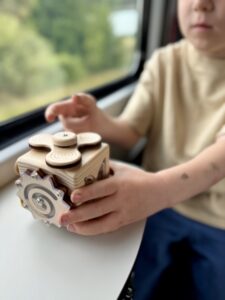
Toys for the airplane – what will occupy the child during the trip?
Traveling with a child is a challenge, especially on an airplane, where space is limited
Kochani, z końcem stycznia 2026 sklep Little Dragon zostaje zamknięty. Dziękuję za wszystkie zamówienia i zaufanie — mam nadzieję, że moje zabawki będą jeszcze długo towarzyszyć dzieciom w zabawie i rozwoju. Zamówienia na dostępne produkty można składać do 30 stycznia 2026 (lub do wyczerpania zapasów). Dziękuję, że byliście częścią Little Dragon 🤍 Dismiss
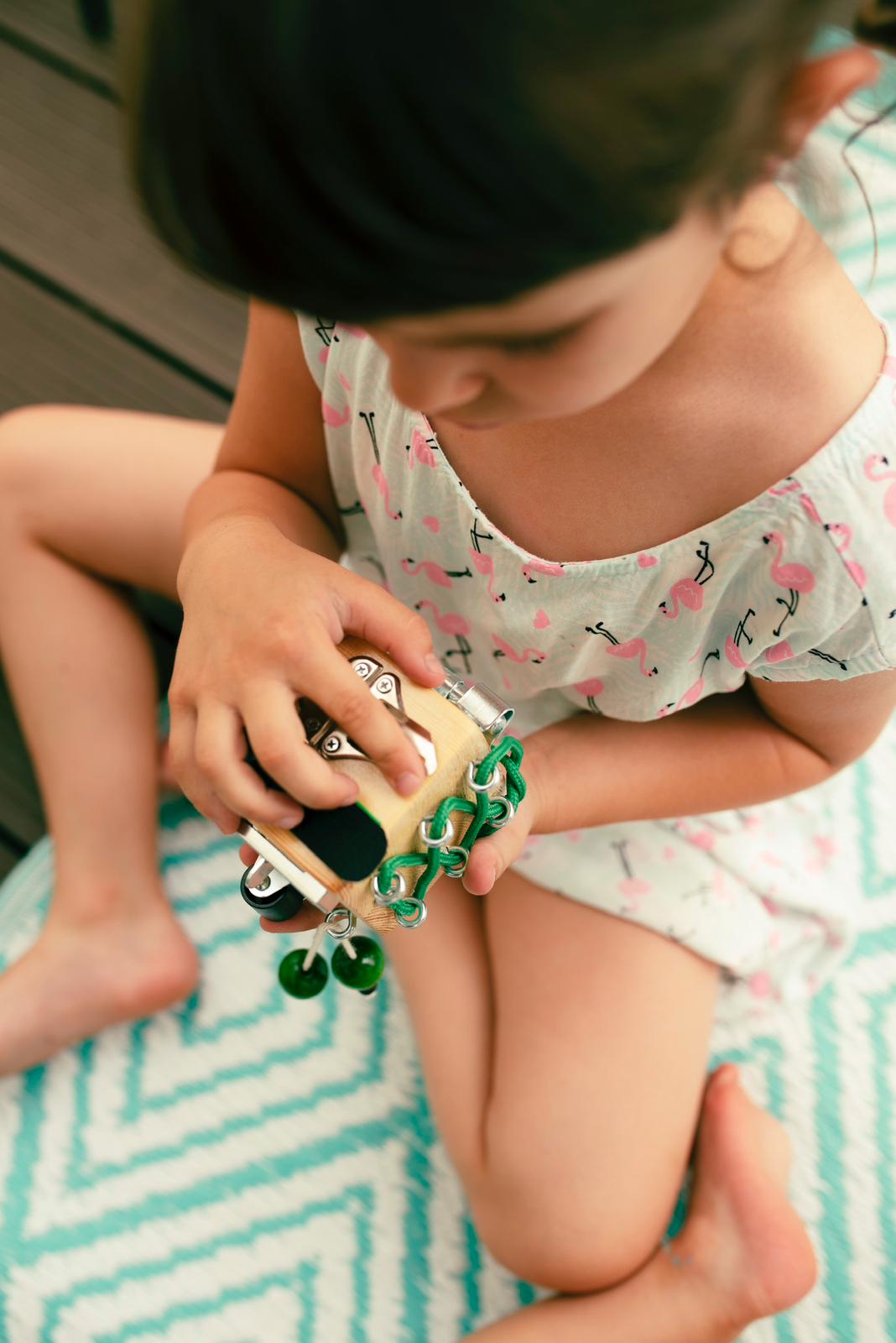
The development of children’s small motor skills is a key component of their overall physical and mental development. Through play, children learn to control the movements of their hands, fingers. In addition, they coordinate with other senses. In this article, we will discuss various methods, techniques and toys that help develop small motor skills in children. How to develop small motor skills through play?
Small motor skills refers to the ability to control the small muscles of the hands and fingers. This is extremely important for everyday activities such as writing, buttoning buttons, tying shoes and eating with cutlery. Well-developed small motor skills also have a positive impact on cognitive development, as they engage concentration, coordination and precision.
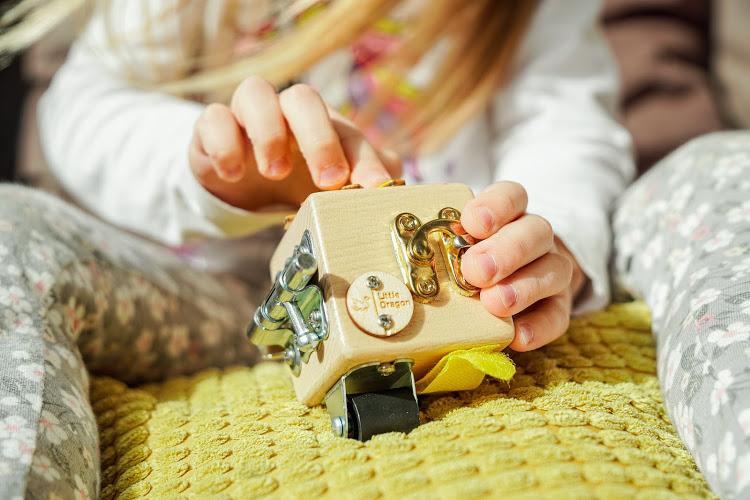
Educational toys are designed to promote the child’s motor and mental development. Examples of such toys include:
Puzzles are an excellent tool for developing small motor skills. In fact, they teach children patience, concentration and precision of movements. When choosing puzzles, it is actually worth paying attention to:
Manipulative boards , also known as sensory boards, are tools that engage a child’s multiple senses simultaneously. They can include various elements such as:
Board games and arcade games are another great way to support small motor development. Examples of such games include:
Cubes and blocks are great tools for developing small motor skills. Children can:
Drawing and painting are basic activities that promote the development of small motor skills. Using various tools such as:
Handiwork, such as cutting, gluing, modeling with plasticine or pastry cream, is an excellent exercise for small motor skills. Children can:
Montessori toys are designed in accordance with Maria Montessori’s philosophy. In fact, it emphasized self-discovery and learning through play. Examples of such toys include:
For children as young as 2 years old, the best toys are those that develop their fine motor skills and senses. Examples include:
For children aged 3 to 4, it is worth choosing toys that challenge them more. Examples include:
First of all, when it comes to older children, it is worth choosing more advanced toys that develop their cognitive and motor skills. Examples include:
The best educational toys for young children are those that are appropriate to their age and abilities. Above all, puzzles ,manipulative boards, and simple board games with large, easy-to-grasp pieces are ideal for children aged 2-4. It is important that the games are colorful, engaging and have simple mechanics that will not overwhelm the toddler.
2. what is small motor skills and why is it important?
Small motor skills refer to the precise movements of the hands and fingers. It is crucial for developing skills such as writing, buttoning buttons and tying shoes. In fact, good motor skills affect a child’s independence and ability to perform daily activities.
3. what games best develop small motor skills?
The best games are those that involve hands and fingers. Examples include stacking blocks, drawing, cutting out, sticking plasticine or playing with beads. In fact, such activities improve precision of movement and eye-hand coordination.
4. are Montessori toys good for developing small motor skills?
Yes, Montessori toys are excellent for developing small motor skills. First of all, they focus on the child’s independent performance of tasks. In fact, they promote the development of precise movements. Examples include manipulative boards, wooden blocks or sorting tools.
5. What are the best materials for games that develop small motor skills?
The best materials are those that are safe, durable and pleasant to the touch. Wooden toys, plasticine, kinetic sand or beads are great options. It is important that the materials are age-appropriate for the child and do not pose a choking hazard.

Traveling with a child is a challenge, especially on an airplane, where space is limited
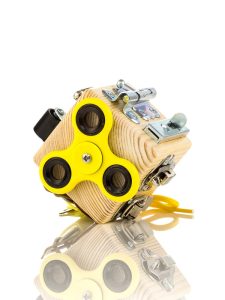
Choosing the right gift for a 2-year-old boy can be a challenge, especially when you
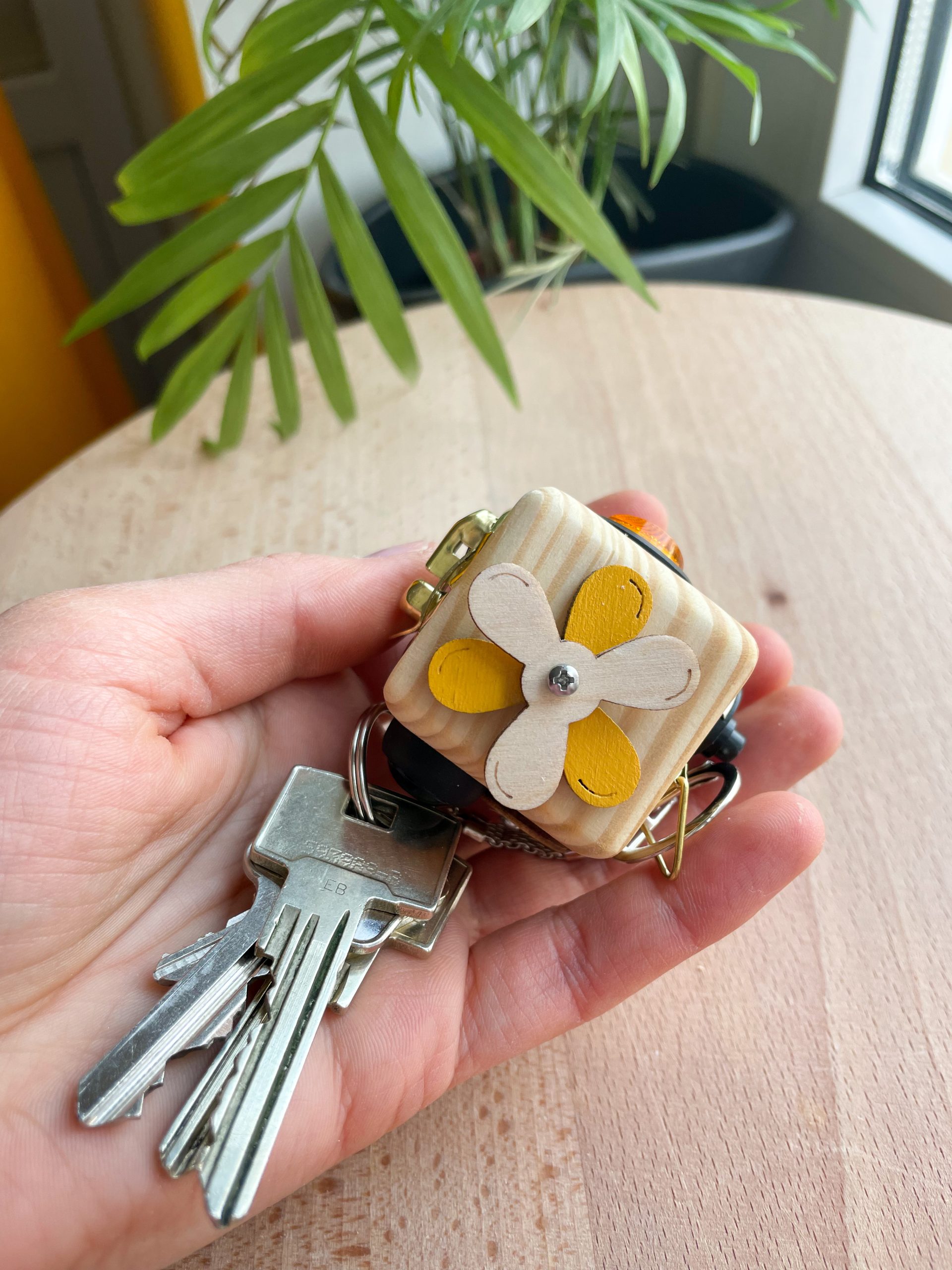
In today’s busy world, more and more people are looking for ways to reduce stress
| Cookie | Duration | Description |
|---|---|---|
| cookielawinfo-checkbox-analytics | This cookie is set by GDPR Cookie Consent plugin. The cookie is used to store the user consent for the cookies in the category "Analytics". | |
| cookielawinfo-checkbox-functional | The cookie is set by GDPR cookie consent to record the user consent for the cookies in the category "Functional". | |
| cookielawinfo-checkbox-necessary | This cookie is set by GDPR Cookie Consent plugin. The cookies is used to store the user consent for the cookies in the category "Necessary". | |
| cookielawinfo-checkbox-others | This cookie is set by GDPR Cookie Consent plugin. The cookie is used to store the user consent for the cookies in the category "Other. | |
| cookielawinfo-checkbox-performance | This cookie is set by GDPR Cookie Consent plugin. The cookie is used to store the user consent for the cookies in the category "Performance". | |
| viewed_cookie_policy | The cookie is set by the GDPR Cookie Consent plugin and is used to store whether or not a user has consented to the use of cookies. It does not store any personal data. |